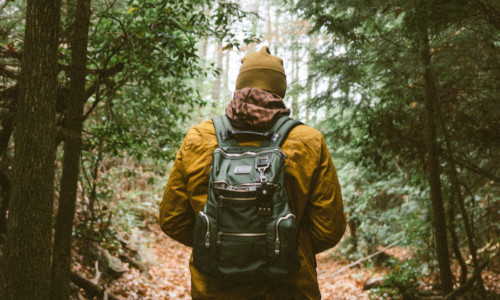Urban Survival Skills: Stay Safe in a Crisis
Introduction
As an experienced self-reliance advocate, I’ve spent years honing my skills in wilderness and rural environments. However, with an increasing percentage of the world’s population living in urban areas, it’s crucial to adapt and develop survival strategies tailored to city life. In this blog post, I’ll share essential urban survival skills to help you stay safe and self-sufficient during a crisis in a city.

1. Situational Awareness
In an urban environment, being aware of your surroundings is critical to your safety. Always pay attention to the people, vehicles, and potential dangers around you. Stay informed about local news and events, which can provide early warnings of potential threats. Websites like AlertsUSA or local government websites can help you stay up-to-date with relevant information. Trust your instincts, and if something feels off, avoid the area or situation. For more tips on improving your situational awareness, check out this article.
2. Self-Defense
In a crisis, personal safety becomes a top priority. Invest time in learning self-defense techniques or take a class in martial arts. Websites like Self Defense Training System offer online courses, or you can find local classes through organizations like Krav Maga Worldwide. Additionally, consider carrying non-lethal self-defense tools, such as pepper spray or a personal alarm. Remember, the goal is to protect yourself and your loved ones, not to engage in unnecessary conflicts.
3. Escape and Evasion
During an urban crisis, it’s essential to know how to move stealthily and quickly through the city. Familiarize yourself with your area’s street layout, public transportation, and escape routes. Websites like Google Maps or Citymapper can help you plan your routes. Practice blending in with the crowd and avoiding drawing attention to yourself. Always have a pre-planned destination, such as a friend’s apartment or a community center, where you can seek refuge if needed.
4. Urban Foraging
While cities may seem devoid of natural resources, they can still provide a surprising amount of food and water during a crisis. Learn to identify edible plants growing in parks, gardens, and empty lots. Books like The Urban Forager or websites like Eat the Weeds can help you get started. Familiarize yourself with safe water sources, such as fountains, public restrooms, and rainwater collection. Don’t overlook dumpsters and discarded items as potential sources of food and supplies. Be cautious, however, and always prioritize safety and hygiene when foraging.
5. Emergency Shelter
In an urban disaster scenario, you may be forced to seek shelter outside of your home. Knowing how to create a makeshift shelter can be crucial to your survival. Look for abandoned buildings, construction sites, or parking garages, and ensure they’re structurally sound and hidden from potential threats. Carry a compact emergency blanket or tarp in your bug-out bag to help insulate yourself from cold and wet conditions. Websites like The Prepared offer guidance on finding and creating urban shelters in emergency situations.
6. Fire and Cooking Skills
During an urban crisis, traditional cooking methods may be unavailable. Learn how to create a small, discreet fire using items found in the city, such as dry paper, cardboard, or wood scraps. Practice cooking with a portable stove or a makeshift rocket stove, which can be assembled from tin cans or bricks. Websites like Instructables provide step-by-step guides for building your own rocket stove. Remember to practice fire safety and only build fires in well-ventilated, secure locations.
7. Networking and Community
Establishing connections with your neighbors and local community can be invaluable during an urban crisis. Share your skills and knowledge, as others may have complementary abilities that could be mutually beneficial. Strong communities are more likely to survive and recover from disasters. Consider joining or starting a Community Emergency Response Team (CERT) in your area, which can help you connect with like-minded individuals and receive training in disaster response.
Conclusion
Urban survival skills require a different mindset and approach compared to traditional survivalism. By developing these skills and adapting to the unique challenges of city life, you’ll be better equipped to face any crisis that comes your way. Stay safe, stay prepared, and remember that knowledge and adaptability are your most valuable assets in a city during a crisis. For more information on urban survival skills, check out resources like The Urban Prepper YouTube channel or books like The Ultimate Situational Survival Guide by Robert Richardson.


